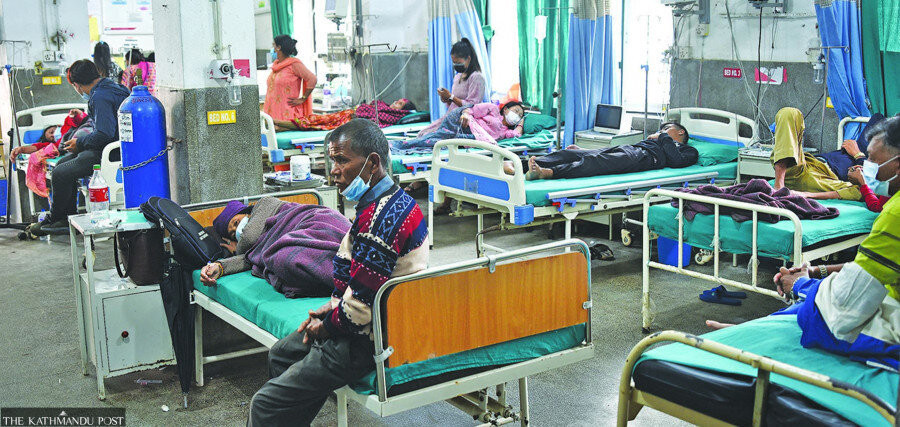Health
Licences of hundreds of health facilities in Bagmati Province not renewed for two years
Investors complain they are deprived of importing equipment, taking loans from banks and accessing other services due to the apathy of authorities concerned to renew licences.
Post Report
The licences of hundreds of health facilities of Bagmati Province have not been renewed for the past two years, as the provincial government has yet to enact its public health law.
Health officials say even if the licences of most private health facilities have expired, those facilities are not illegal.
They, however, concede that no agency in the country is monitoring activities of the private health facilities and their service quality due to the failure to renew the licences.
“Other provinces across the country have already passed the provincial public health act to govern private hospitals up to 200-bed capacity and other health facilities,” said Dr Arjun Sapkota, chief of the Health Office, Kathmandu.
“We hope that the Bagmati provincial government will introduce the provincial public health act soon, which will clear the way for licence renewal of the institutions fulfilling the due procedure.”
There are over 1,000 private health facilities, including 52 private hospitals, in Kathmandu district alone. If all the health facilities in the province are counted, they will number in thousands, officials said.
Operators of private health facilities, including the Association of Private Health Institutions of Nepal (APHIN), an umbrella organisation of private hospital operators, complained that they are deprived of banking services, importing health equipment and other facilities due to the apathy of the relevant agencies to renew the licences.
“We recently held discussion with officials at the Health Office, Kathmandu and drew their attention to the non-renewal of licences,” said Dr Padam Bahadur Khadka, chairman of the Private Health institutions of Nepal. “Health facilites have been facing several problems including problems in importing equipment and banking facilities, among others.”
Health officials say that monitoring of private health facilities operating in the districts of the Bagmati Province has been halted due to non-renewal of licences. They say that the condition of hospital equipment, manpower, hospital waste management, power back-up, operation theatres and emergency wards also need to be monitored but remain unattended for years.
Studies show over 95 percent private hospitals have been operating out of rented residential buildings that have no proper patient safety measures. Nor are the facilities equipped to withstand disasters like earthquake and fire, and to handle patient flow caused by such disasters and disease outbreaks.
Buildings that are currently being used by private hospitals were built many years ago and do not meet the basic criteria as they aren’t equipped with emergency entry and exit points, fire escapes, and waiting areas, among others. Majority of private hospitals also lack the required human resource and force staff to work overtime in the absence of enough personnel.
Inspections carried out in the past show that most hospitals are also found to be lacking in hazardous waste management systems. The inspection team of the Ministry of Health and Population and local units found that most hospitals segregate hospital waste but the waste is then sent to private companies for management, where household waste is mixed up with the hospital waste. When hazardous waste produced from hospitals is left untreated, chances of infection spreading in communities are high.
“Once the provincial government brings the provincial public health act, we will monitor the health facilities and renew licences,” Sapkota said.




 13.12°C Kathmandu
13.12°C Kathmandu














